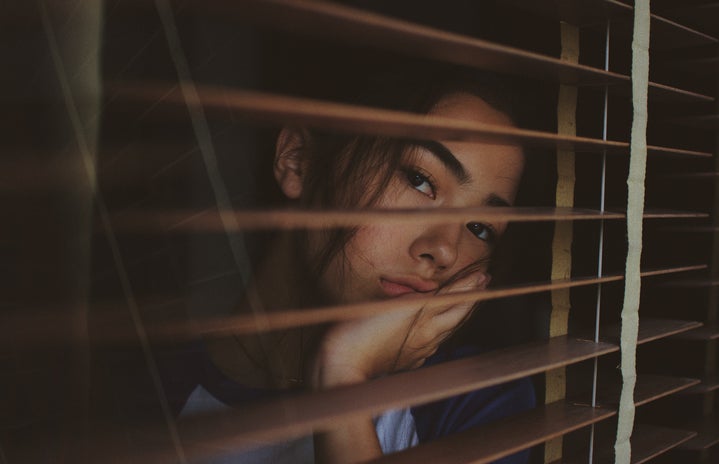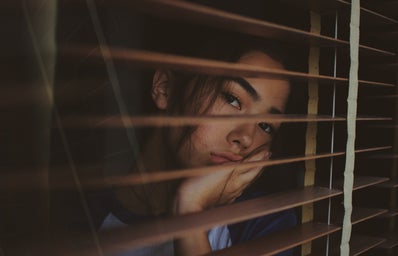Since I haven’t found a term for it, I’ve decided to make one myself: Hollywood Tears. Hollywood Tears describes the notion or need, even, of pretty crying, so frequently seen in classic Hollywood films. It’s the beautiful, sweet, dainty woman who cries without much change to her face. Perhaps her lip quivers, maybe her nostrils flare a little, but the only signifier that she’s crying are the tears elegantly rolling down her face. There’s nothing inherently wrong with looking unchanged when you cry, but the societal pressure around Hollywood Tears is an issue.
Lana Del Rey sings it most iconically in her song “Pretty When You Cry” from her album Ultraviolet. Kim Kardashian-West makes reference to it when she tells us that she’s an “ugly crier.” Oprah Winfrey coined the term to describe herself. The idea of ugly crying counters pretty crying pretty well: that you are so sad and so overwhelmed that in trying to hold back your tears, your face distorts into a mess of lines, redness, blotchiness, maybe a snotty nose. I’m going to take a moment right now to say that’s okay. How you cry is unique to you, just as much as how you talk or how you walk. So, for example, while Kim K might be a public figure, mocking how her body expresses sadness–an important, normal, and universal emotion–isn’t actually okay. She may be a celebrity, but she’s also a person.
Sadness is as basic to the human experience as joy and anger. As described in her Science of People article, Vanessa Van Edwards explains that crying as a result of emotion isn’t seen in any other animal or organism, and is part of what distinguishes us as human beings. Crying tends to occur because we are so overcome with a certain emotion that the chemical flood to the brain requires some sort of release, hence the tears. This also explains why we might cry when we’re happy or angry. Sadness itself has its own benefits. We are more likely to be intentional with our words and think more rationally about others. It can also serve as a motivating factor, Van Edwards explains, because we are dissatisfied and are then pushed to make some kind of change.
We train ourselves into unhealthy behaviors when we feel like we aren’t allowed to cry, or that the way we cry isn’t okay, or that we have to hide our “ugly crying faces” from the world and do so in isolation. It’s seen first and foremost with men. Despite males exhibiting a wider range of emotions at infancy, men are significantly less likely to cry than women, according to this article from Psychology Today. The idea that “big boys don’t cry” because that outpouring of emotion is deemed too “feminine” not only breeds and feeds the notion of toxic masculinity, but also fuels the fundamental idea of sexism that women are inferior. (I can’t help but be reminded of a line from The Celluloid Closet: “There’s no sin like being a woman.” I recommend the watch.) But that’s another conversation. Telling boys and men that they are not allowed to cry leads to an underdevelopment of emotional intelligence that is often dangerous not only to men, but to women. It’s no secret that male violence and domestic violence is a significant issue.
My point is that sadness is normal, and crying is not only okay but necessary. We shouldn’t feel ashamed of our sadness. We shouldn’t feel ashamed of the way our faces look when we cry, whether they remain unchanged or the entire face distorts. Most importantly, we shouldn’t shame others about this. If we enforce this idea that it’s only okay to express our emotions IF we are beautiful when we do so, in a society that profits off of insecurity we will only end up with dysfunctional, angry, hurt, and struggling people. Kill the idea of Hollywood Tears. Cry when you need to, take care of yourself, and spread the idea that others should, too.


